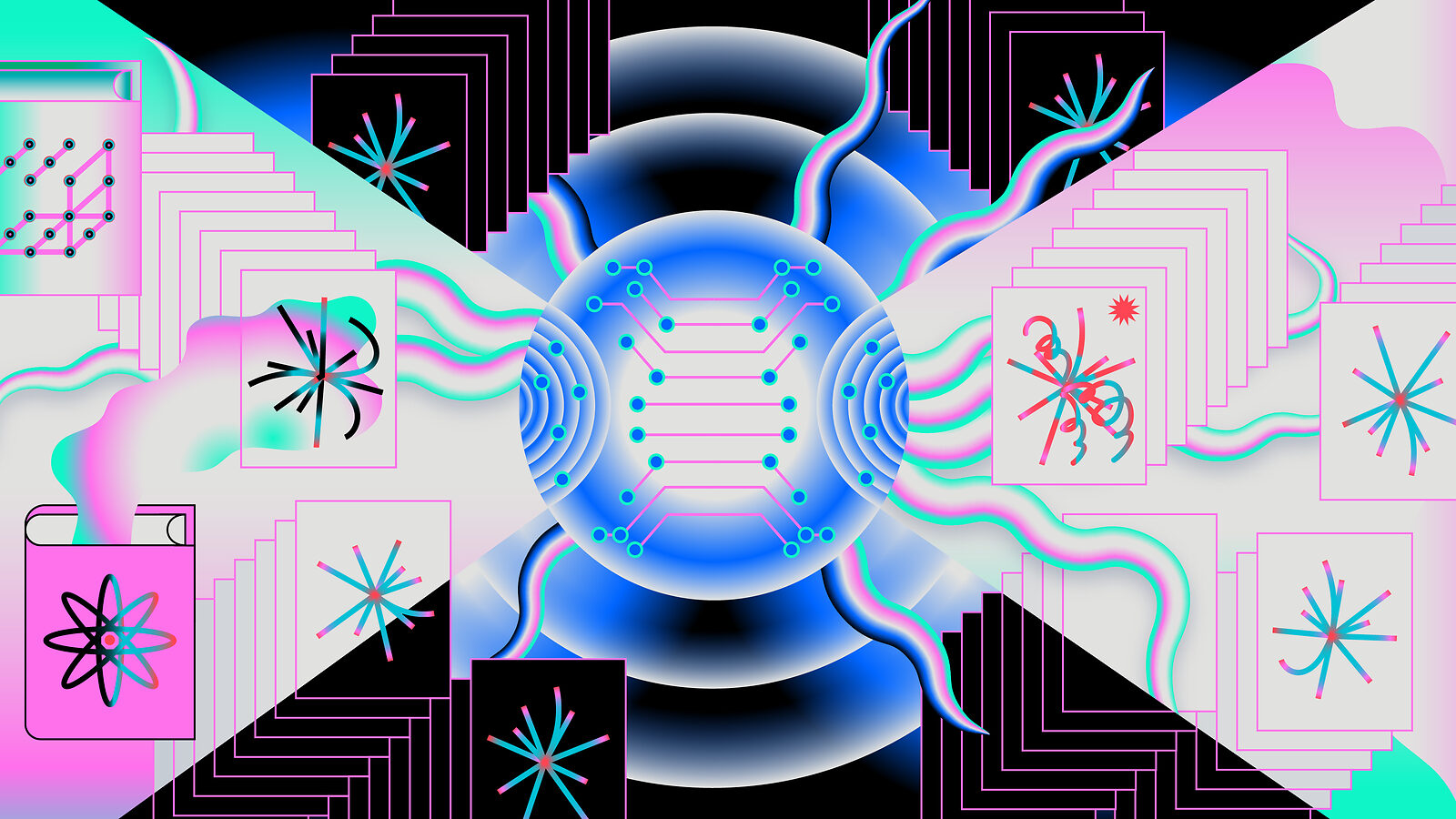
Particle Physicists Advance Artificial Intelligence
Particle physicists advance artificial intelligence in their quest to explore the frontiers of science. They face unique challenges in operating complex accelerators and detectors and in analyzing massive streams of data. They meet these challenges with innovative techniques that have applications in other areas of science and in industry.
Particle Physicists Advance Artificial Intelligence
2 MB
Particle physicists develop robust AI for science and engineering
Particle physicists have used AI for decades and increasingly find new applications for the technology. They meet challenges that are beyond the current state of the art and develop new solutions to address them. Solving these challenges in AI can impact other fields of science and help advance industry.
AI for Facility Operations
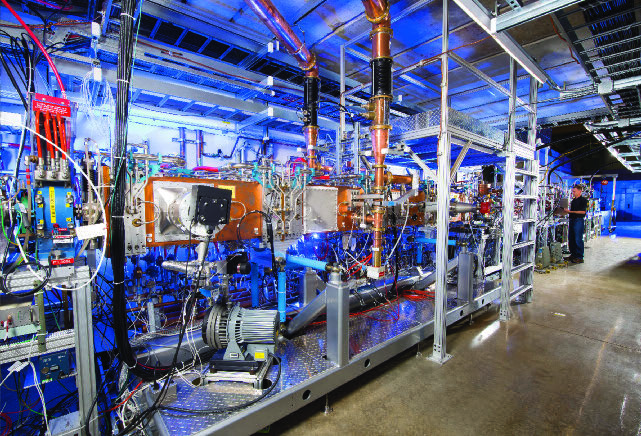
Researchers use AI to more effectively and efficiently operate extremely complex machines, such as the PIP II Injector Test Facility at Fermi National Accelerator Laboratory. AI relieves human operators of the need to constantly adjust dozens of knobs that carefully shape the particle beam.
Addressing this challenge could lead to applications in Industrial Operations.
Close
AI for Image Processing
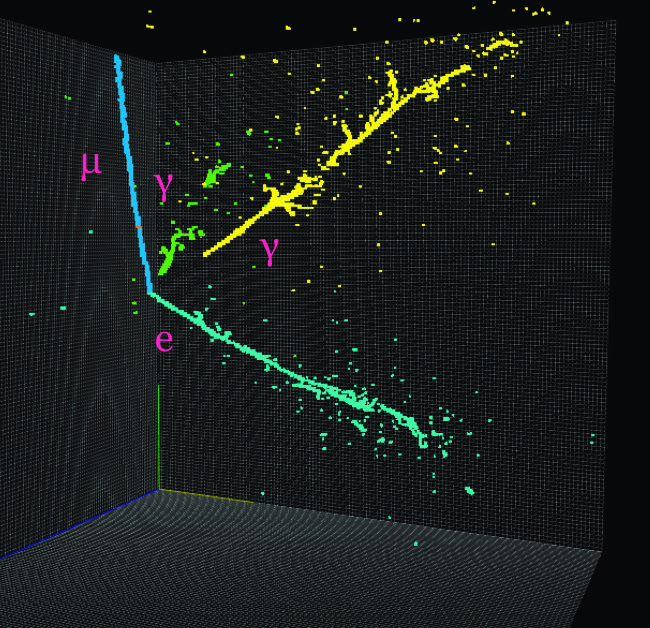
Particle physicists adapted the AI in self driving cars to improve their image classification systems, but those tools lingered too long on pixels with no useful data. To meet this challenge, they developed a new AI technique that enables more rapid image processing by focusing on the data rich pixels while ignoring the empty ones.
Addressing this challenge could lead to applications in Medical Research.
Close
AI for Rapid Decisions
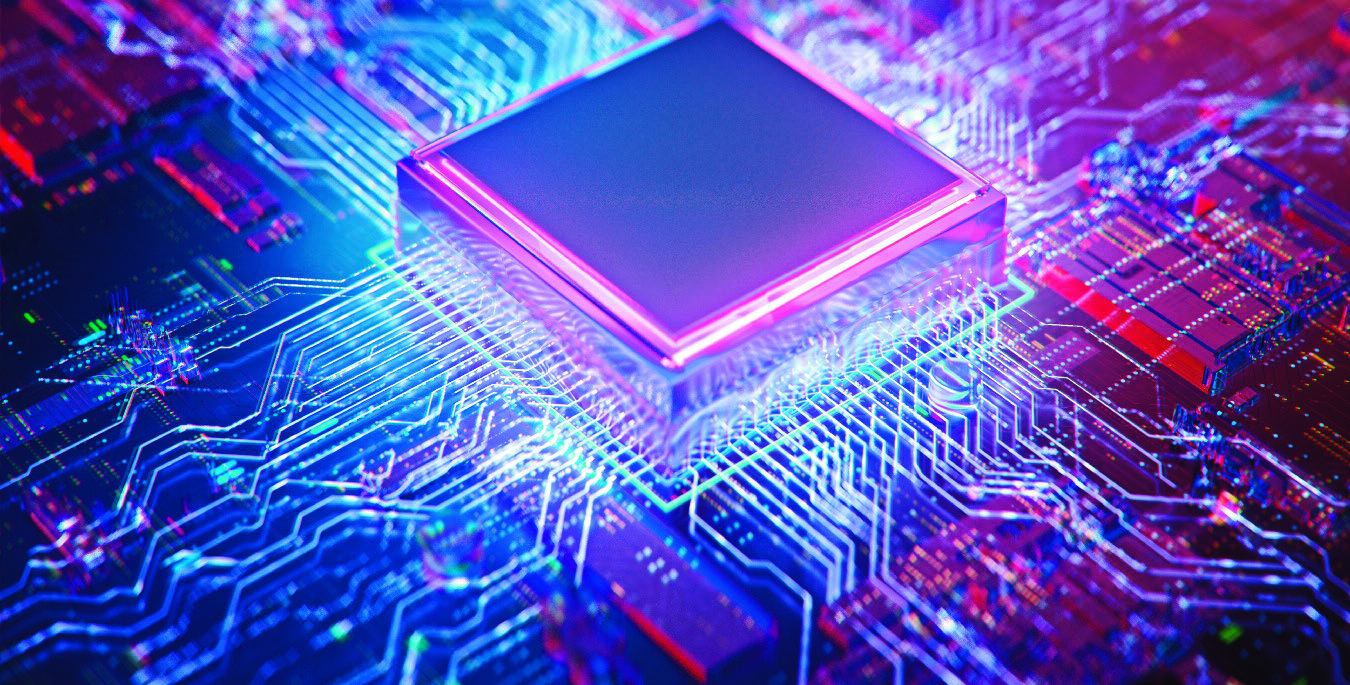
The CMS experiment generates data far too quickly for traditional computers to handle. Turbo boosting special circuits, called Field Programmable Gate Arrays (FPGAs), instantly decide what data are interesting enough to keep and which can be safely discarded.
Addressing this challenge could lead to applications in Smart City technology.
Close
AI for Reliable Decisions
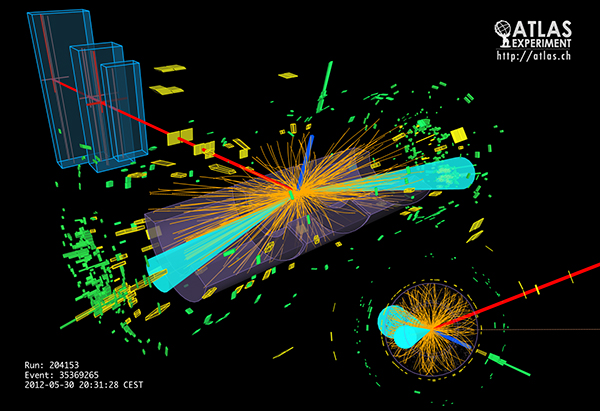
Particle physicists have devised new AI techniques to help them classify the mass of complex data generated by the ATLAS experiment at the Large Hadron Collider. They train their algorithms to ignore unreliable information. This work has connections to any endeavor involving extreme data environments.
Addressing this challenge could lead to applications in Cybersecurity.
Close
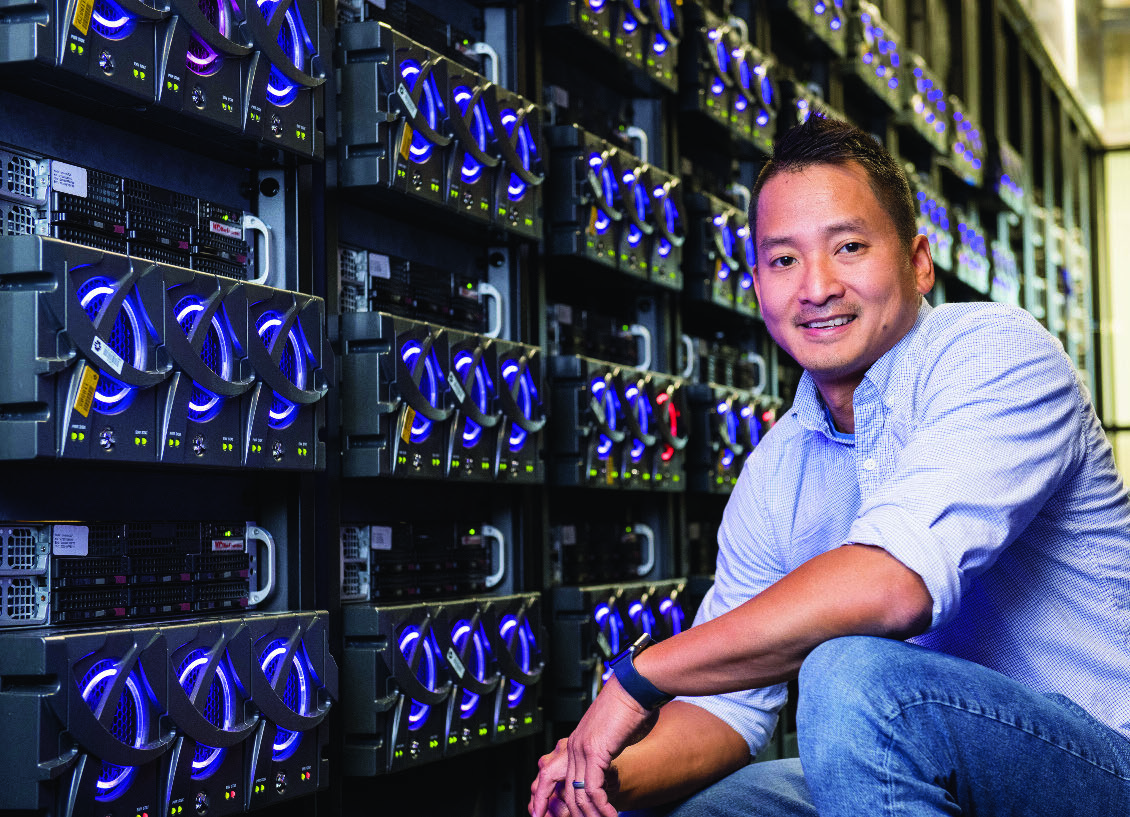
Image courtesy of Fermilab.
Particle physicists collaborate with industry leaders
Researchers in industry work together with particle physicists to develop new AI technology for these challenging applications.
Rapid Decision Technology
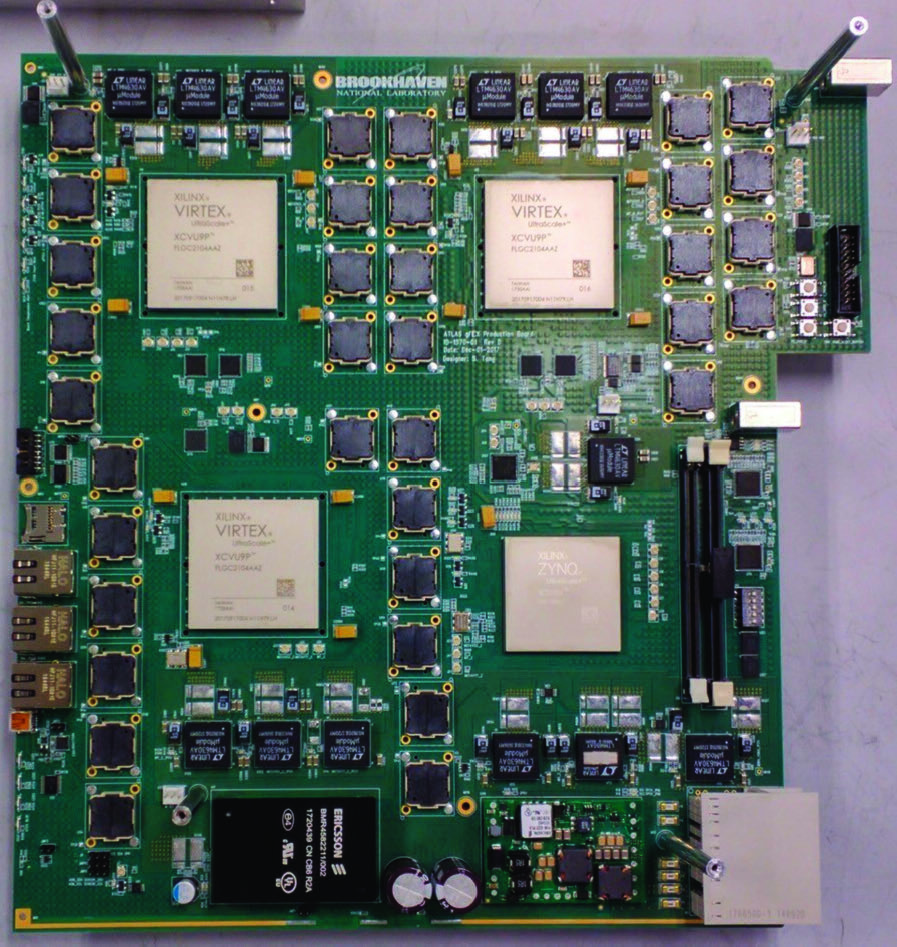
Xilinx constructs advanced hardware that enhances the rapid data processing needed for the CMS experiment at the Large Hadron Collider (LHC).
Close
Rapid Processing Technology
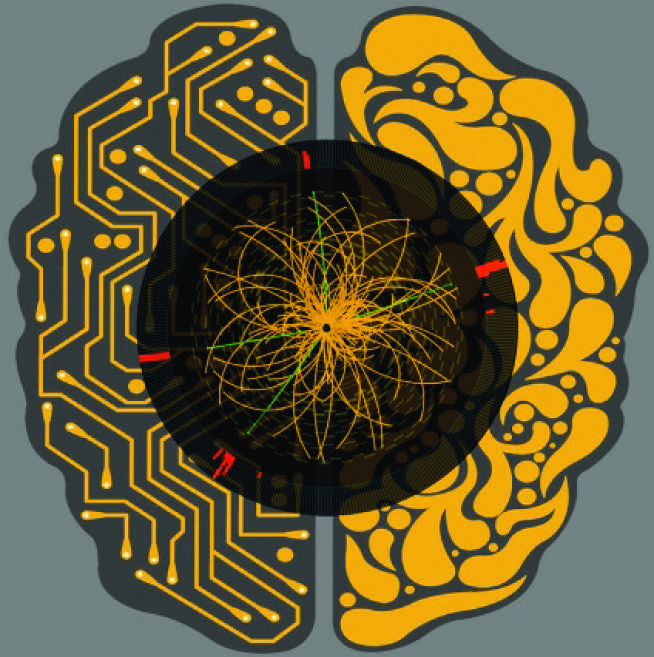
Particle physicists are using the advanced AI processors on Microsoft’s Azure cloud service to process LHC data in record time.
Close
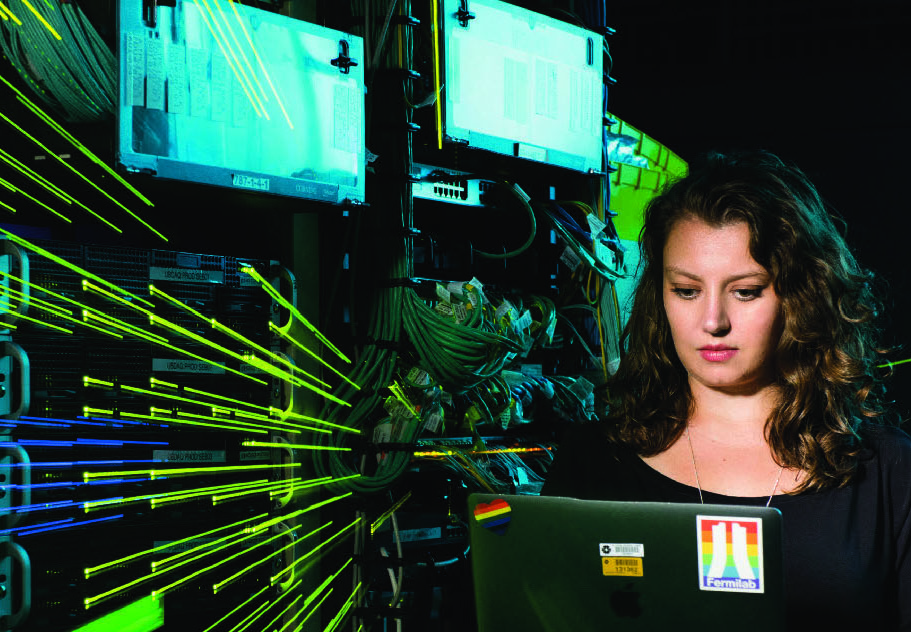
Image courtesy of Fermilab.
Particle physics trains an AI-ready workforce
Particle physicists who work with AI bring their effective, multidisciplinary skills to other fields and industries.
AI is important because it can help you discover things your brain and other techniques can’t. There are many algorithms, but you have to know which one to use and understand where it’s applicable. Industry needs this expertise, and I’ve already worked with Boeing, Lockheed Martin, and companies in the energy sector.

Sandra Biedron, University of New Mexico and Element Aero
At Tesla, I transformed enormous data sets into detailed road maps for self driving cars and at DeepMind, I am building AI systems that imagine and plan. My experience in particle physics trained me to tackle these complex problems while dealing with the noisy and uncertain data of the real world.

Alex Mott, DeepMind
